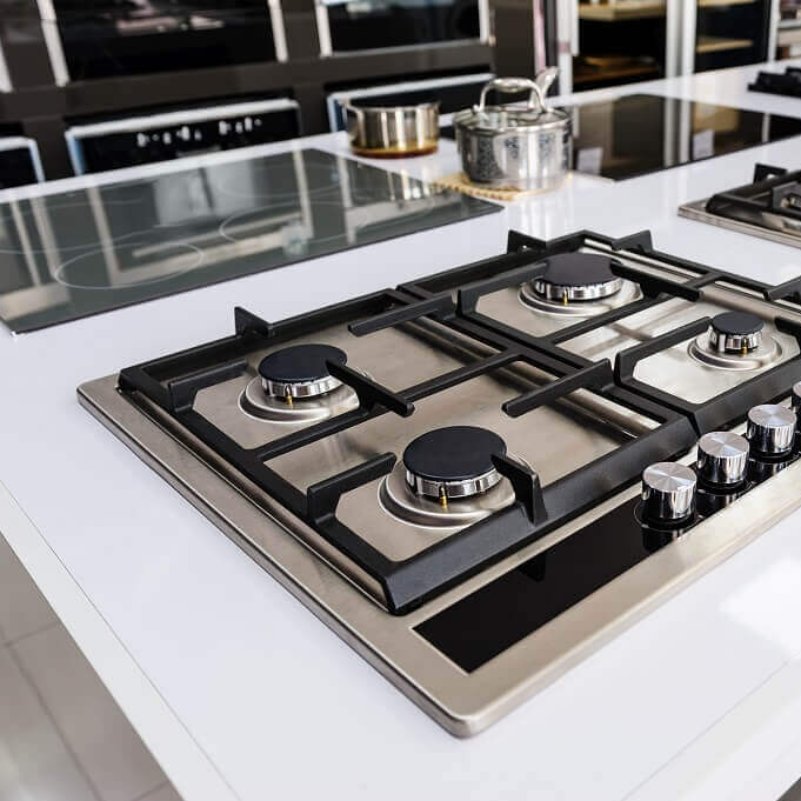Here are some factors to consider when choosing a cooktop:
- Initial cost
- Efficiency
- Ease of use
- Safety
- Ongoing costs
- Durability
- What kind of cooking you do
To help you compare this blog provides information about the differences between electric and gas cooktops as well as the pros and cons to consider.
Electric Cooktops
Electric cooktops are a common choice for kitchens. You get a range of choices including ceramic glass (in either black or stainless steel) which have a hidden element for a seamless, smooth top finish. The traditional coil heat elements where burners are raised on top are still available for a classic look.
Pros of electric cooktops
Electric cooktops are some of the cheapest to purchase meaning you can get something to fit your budget more easily than other cook types.
The hidden elements make cleaning a breeze as there is a seamless, flat surface to wipe over.
Cons of electric cooktops
Electric cooktop elements remain extremely hot after being turned off. While many modern cooktops provide a heat warning light, you do still need to be safety conscious when cooking is completed and give the cooktop plenty of time to cool down before cleaning.
Overall you’ll get less control over your temperatures as electric coils are slow to respond to change.
The majority of heat is focused on the middle of the coil element meaning that larger pots may not receive even cooking to the entire surface.
Any spills are immediately burned and baked into the plate, making it hard to remove, especially as you’ll need to wait for a long period before the elements cool down enough to wipe over.
As well as being more expensive to buy than gas, electricity is less efficient so cooking times will be longer overall.
Gas Cooktops
Gas cooktops are becoming extremely popular as more and more households in Canberra gain connections to natural gas lines. While you can use LPG tanks, natural gas is the most convenient and cost-effective way to power your kitchen cooking appliances. The emergence of competitive cooking shows and online cooking gurus that all feature gas has also inspired a new generation of cooks happy to switch loyalties to gas in order to get the benefits of more cooking control and choice, including specific burners for woks.
Pros of gas cooktops
- Gas temperatures are easy to control and instantly responsive, giving you consistent and visible heat the instant you turn it on. This allows you to instantly remove a pot from heat or reduce it to a simmer at the slightest touch.
- In the event of a power loss you still get access to your gas connections or LPG to continue cooking or get around annoyances like not having a kettle to boil water.
- When billing water gas has shown to be as much as three times more efficient than using an electric stove.
- Elements cool quickly making them safer to touch and giving you faster access to your stove top as bench space if needed.
Cons of gas cooktops
- You will most likely need to pay a little more for your gas stove top in-store and may need to pay to have gas connections to your kitchen if not previously supplied.
- The raised trivets can be difficult to clean after a spill.
- There is an added fire risk with an open flame, which might not make gas suitable for young families.

